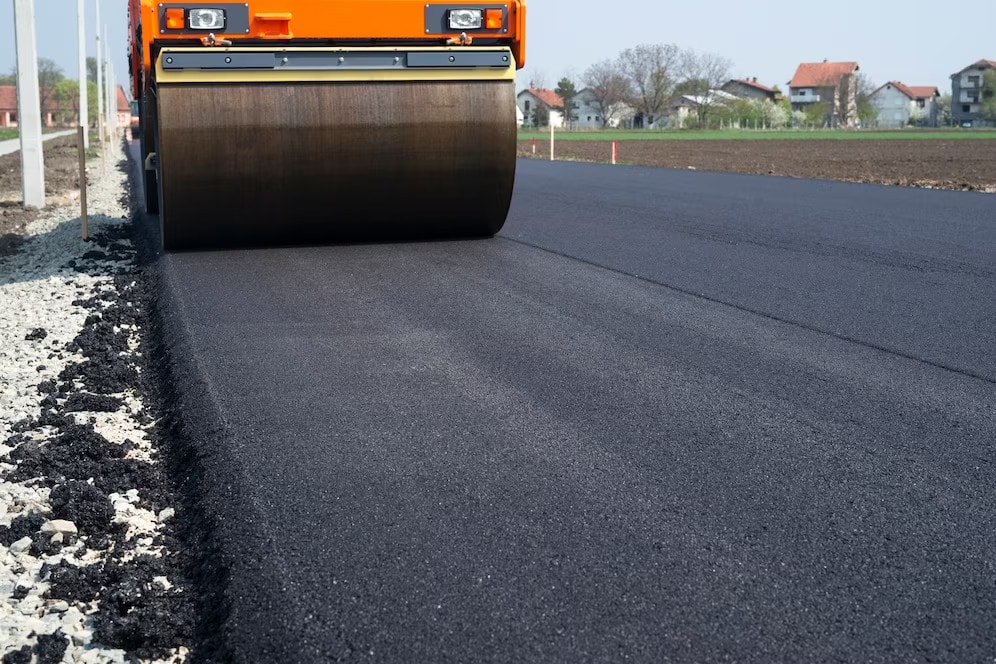When it comes to upgrading your driveway, parking lot, or private road, asphalt paving is one of the most popular choices. Its sleek appearance, durability, and cost-effectiveness make it a go-to option for both homeowners and business owners. But is it always the right choice? In this guide, we’ll break down the benefits of asphalt paving, explore the costs involved, and help you decide when it’s the best option for your project.
What Is Asphalt Paving?
Asphalt paving refers to the process of applying hot asphalt mix (a combination of stone, sand, and asphalt cement) onto a prepared surface to create a smooth, durable roadway or lot. It’s widely used for driveways, highways, and parking lots because of its balance of affordability and long-term performance.
Benefits of Asphalt Paving
1. Durability and Longevity
Asphalt is designed to withstand heavy loads and regular traffic. With proper installation and maintenance, an asphalt surface can last 15–25 years. Its flexibility makes it resistant to cracking compared to more rigid surfaces like concrete.
2. Cost-Effective
Compared to concrete, asphalt paving generally comes with lower upfront costs. It also has faster installation times, reducing labor expenses and minimizing disruption to businesses or daily routines.
3. Quick Installation
Asphalt paving projects can often be completed in as little as one to two days. Because asphalt sets quickly, driveways and parking lots are typically usable within 24–48 hours, making it an efficient choice.
4. Weather Resistance
Asphalt’s dark color helps it absorb heat, speeding up the melting of ice and snow in colder climates. Additionally, modern asphalt mixes are designed to withstand extreme weather, from hot summers to freezing winters.
5. Smooth and Quiet Surface
Asphalt offers a smooth driving surface that reduces vehicle wear and improves fuel efficiency. Its noise-reducing properties also make it a quieter option for residential neighborhoods.
6. Environmentally Friendly
Contrary to common belief, asphalt is highly recyclable. In fact, it’s one of the most recycled materials in the U.S., with over 80% of reclaimed asphalt being reused in new paving projects.
Costs of Asphalt Paving
The cost of asphalt paving can vary significantly depending on several factors:
1. Size of the Project
The larger the surface area, the higher the total cost. However, larger projects usually benefit from lower costs per square foot because materials and labor are spread over a bigger area.
2. Thickness of Asphalt
Driveways usually require about 2–3 inches of asphalt, while commercial lots or roads may need 4–6 inches to support heavier loads. The thicker the asphalt layer, the higher the material costs.
3. Site Preparation
Costs can increase if your site needs grading, excavation, or base preparation. Poor soil conditions or removal of an old surface may add significant expense.
4. Location and Accessibility
Local material costs, labor rates, and accessibility of the site affect pricing. Urban areas often have higher labor costs than rural areas.
5. Sealcoating and Maintenance
Sealcoating every 2–3 years helps extend the life of asphalt but adds ongoing costs. On average, sealcoating runs between $0.20–$0.30 per square foot.
Average Costs
- Residential Driveway: $4–$10 per square foot
- Parking Lot: $3–$7 per square foot
- Roadways: $2–$6 per square foot
While asphalt paving is typically less expensive than concrete, ongoing maintenance should be factored into the long-term cost equation.
When Asphalt Paving Is the Right Choice
1. Driveways
For homeowners, asphalt paving offers a cost-effective and attractive solution. Its smooth finish and quick installation make it ideal for residential driveways.
2. Parking Lots
Businesses benefit from asphalt’s durability, easy maintenance, and professional appearance. Plus, line striping shows up more clearly on dark asphalt.
3. High-Traffic Roads
Asphalt is widely used for highways and city streets because it can handle heavy loads and can be resurfaced instead of replaced entirely, minimizing disruption.
4. Cold Climates
In regions with frequent freeze-thaw cycles, asphalt’s flexibility helps prevent extensive cracking. It’s also easier and less expensive to repair than concrete.
5. Projects Requiring Quick Turnaround
If you need a driveway or lot ready to use quickly, asphalt’s fast curing time makes it a practical solution.
Comparing Asphalt to Alternatives
Asphalt vs. Concrete
- Cost: Asphalt is cheaper initially, but concrete requires less frequent maintenance.
- Durability: Concrete lasts longer (30–40 years), but repairs are more expensive.
- Aesthetics: Concrete can be colored or stamped; asphalt is usually limited to black.
Asphalt vs. Gravel
- Cost: Gravel is cheaper upfront but requires frequent regrading.
- Durability: Asphalt provides a smooth, stable surface, while gravel shifts and ruts.
- Maintenance: Gravel needs more frequent upkeep, while asphalt requires occasional sealing.
Maintenance Tips for Asphalt Paving
To maximize the lifespan of your asphalt surface, follow these best practices:
- Sealcoat Regularly – Every 2–3 years to protect against moisture and UV damage.
- Fill Cracks Promptly – Prevents water penetration that leads to potholes.
- Keep It Clean – Remove debris, oil, and chemical spills quickly.
- Avoid Heavy Loads – Especially in hot weather, as asphalt can soften.
- Proper Drainage – Ensure water flows away to prevent pooling and damage.
Signs It’s Time to Resurface or Replace Asphalt
- Cracking or Alligatoring: Web-like cracks indicate structural issues.
- Potholes: Persistent potholes mean the base may be compromised.
- Drainage Issues: Standing water after rain suggests improper grading.
- Fading Color: Graying indicates oxidation and surface wear.
- Frequent Repairs: If maintenance costs keep rising, full replacement may be more cost-effective.
Conclusion
Asphalt paving remains a top choice for driveways, parking lots, and roads thanks to its affordability, durability, and quick installation. While it requires periodic maintenance, its long lifespan and recyclable nature make it an excellent investment for both residential and commercial projects.
If you’re looking for a cost-effective, attractive, and reliable surface, asphalt paving is often the right choice. Just remember to weigh factors like climate, traffic load, and budget before making your final decision.





